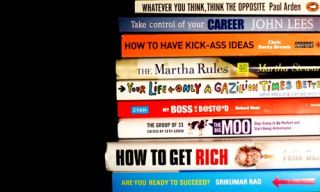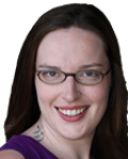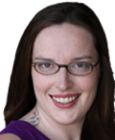Self-Help
I Want to Be Happier! What Should I Read?
Three self-help books with a solid research base
Posted August 18, 2012
This week, I’m starting this post with a question that I would like readers to answer. So before you do anything else, please go to the bottom of this page, click on the comment link, and tell me what your very favorite self-help books are. Just a brief post containing the author and book title is great. If you want to know why I want to know this, keep reading.

With so many books to choose from, where to start?
As someone who studies self-help, one of the first questions I am often asked is "Which book should I read?" There are many ways to answer that question, but here’s my best stab at it. The books I recommend for the average self-help seeker have three things in common:
1) I have read the book and tried it myself. Pretty self-explanatory. I don’t talk about stuff I haven’t read, and if I’ve read it and had a problem with it, I don’t recommend it to anyone else. Feeling Good by David Burns, for example, is an excellent research-based book except for one problem: the tone is really harsh. One of the books I recommend below covers much of the same content as Feeling Good without the whole “getting yelled at” vibe.
2) The book is based on empirical research. There are many very popular books that are not research-based. While it turns out that some of these books are right in some ways, in most cases, it was not the author’s intent to put research findings into practice; any alignment with research is coincidental. Thus, a research-based self-help book is going to (hopefully) have a much better ratio of gold to glop than your average self-help book.
3) The book contains concrete strategies. There are a lot of books out there that are interesting and informative, but that lack explicit guidance as to how a reader might actually get happier; people walk away from them with new knowledge, but no concrete skills. Stumbling on Happiness by Dan Gilbert and Curious? by Todd Kashdan, for example, are lovely research-based books with some great ideas, but I don’t consider either to be self-help books; people walk away from them with new knowledge, but not concrete skills.
Without further ado, here they are:
The How of Happiness by Sonja Lyubomirsky
For someone looking to benefit from the broad body of research on increasing happiness, this is the only choice. The How of Happiness will give you a thorough but digestible overview of the science of happiness (worth reading in itself); then it will suggest a series of activities, several of which have been tested directly in studies, and the rest of which are derived from research findings. In addition to providing a wide variety of possible activities (so you have choices), the book also provides explicit direction about how to choose, which is helpful.
Control Your Depression by Peter Lewinsohn and colleagues
If there were a cognitive-behavioral mirror to Lyubomirsky’s book, it would be Control Your Depression. It contains a clear explanation of the “cognitive model” – the theory underlying the book — as well as techniques for thinking more objectively (the “cognitive” part) and mixing up your routine with activities that are likely to improve your mood (the “behavioral” part).
Full Catastrophe Living by Jon Kabat-Zinn
Jon Kabat-Zinn is the creator of one of the most versatile and highly-researched psychological interventions in existence: Mindfulness-Based Stress Reduction (MBSR). MBSR is a particular way of teaching mindfulness meditation that is (unlike many other meditation-based programs) non-religious and broken down into simple activities. Full Catastrophe Living contains the nuts and bolts of MBSR without having to take a class.*
"Okay, but I only want to read one book! Which do I pick?"
That depends on two things:
1) Which sounds good to you? As mentioned in my last post, one of the most important things that predicts whether something works is whether you believe in it. One of these probably sounds more plausible, more fun, more “you,” than the others, and that’s more likely to work out well for you.
2) How happy/unhappy are you, and why? For people whose primary problem is depression (to get an idea of whether that's you, go here), Control Your Depression has actually been given to people like you and has helped them. There is some evidence that the other two are also helpful for depression, but it’s not their primary focus. If you are very anxious (to get an idea of whether that's you, go here), I would go straight for Full Catastrophe Living. To my knowledge, nothing works better for most anxiety than mindfulness. If you are generally just sort of dissatisfied with life, or if you are reasonably happy but want to make your life more meaningful (to see if that's true of you, try some of the surveys here), then try The How of Happiness. The activities in HoH have primarily been tested in people with mild-moderate depressive symptoms and low-ish life satisfaction - not clinical depression - and that’s who they’re intended for.
Tell me what books YOU like!
It is probably apparent by now that my knowledge of self-help is biased towards approaches that are inspired by scientific research. However, I know there are many other approaches out there, and one of my goals for the coming weeks is to learn more about them. This is the motivation behind my Comment Challenge for this week – Help me learn more about who my readers are by leaving a comment and telling me about your favorite self-help guru/book! See you next week with a follow-up to the comments I will (hopefully) get this week.
*As a side note, if you have the time, money, and ability to take a MBSR class, I highly recommend it. I took one at the University of Pennsylvania in 2005 and it continues to have changed my life.
Photograph by Graeme Robertson. Used with permission.




